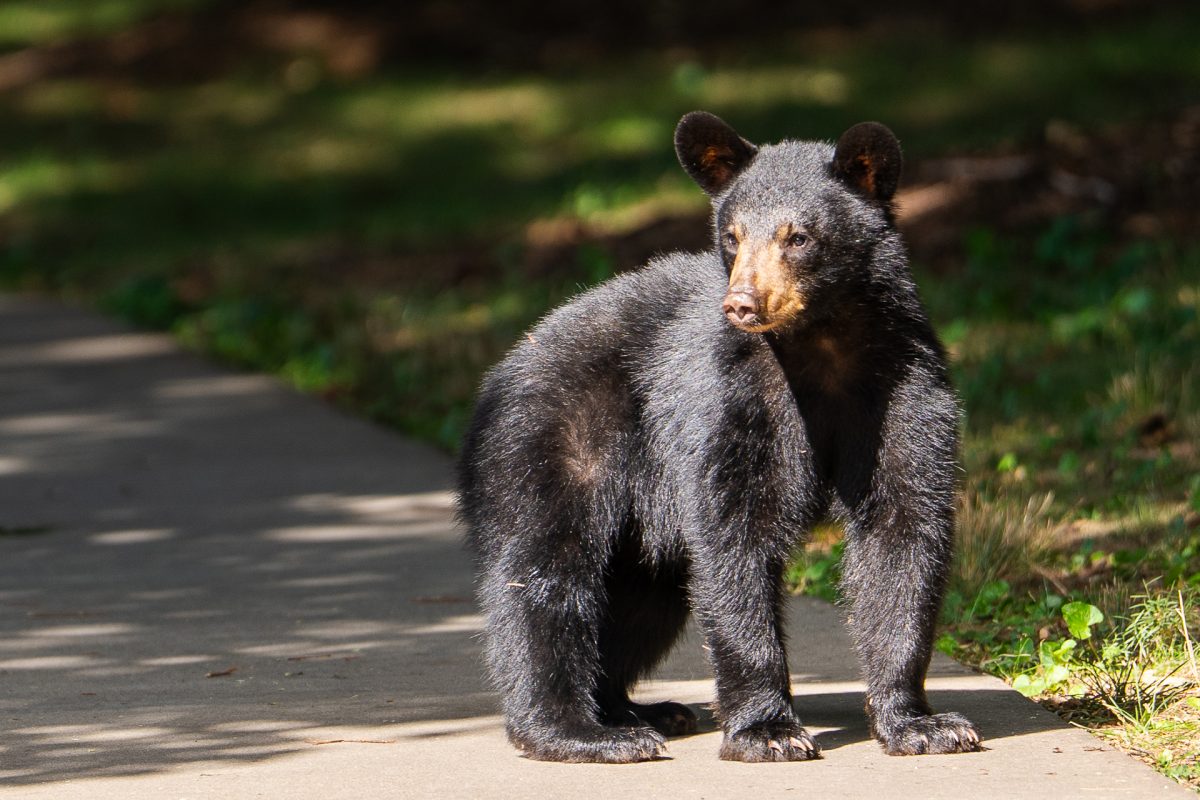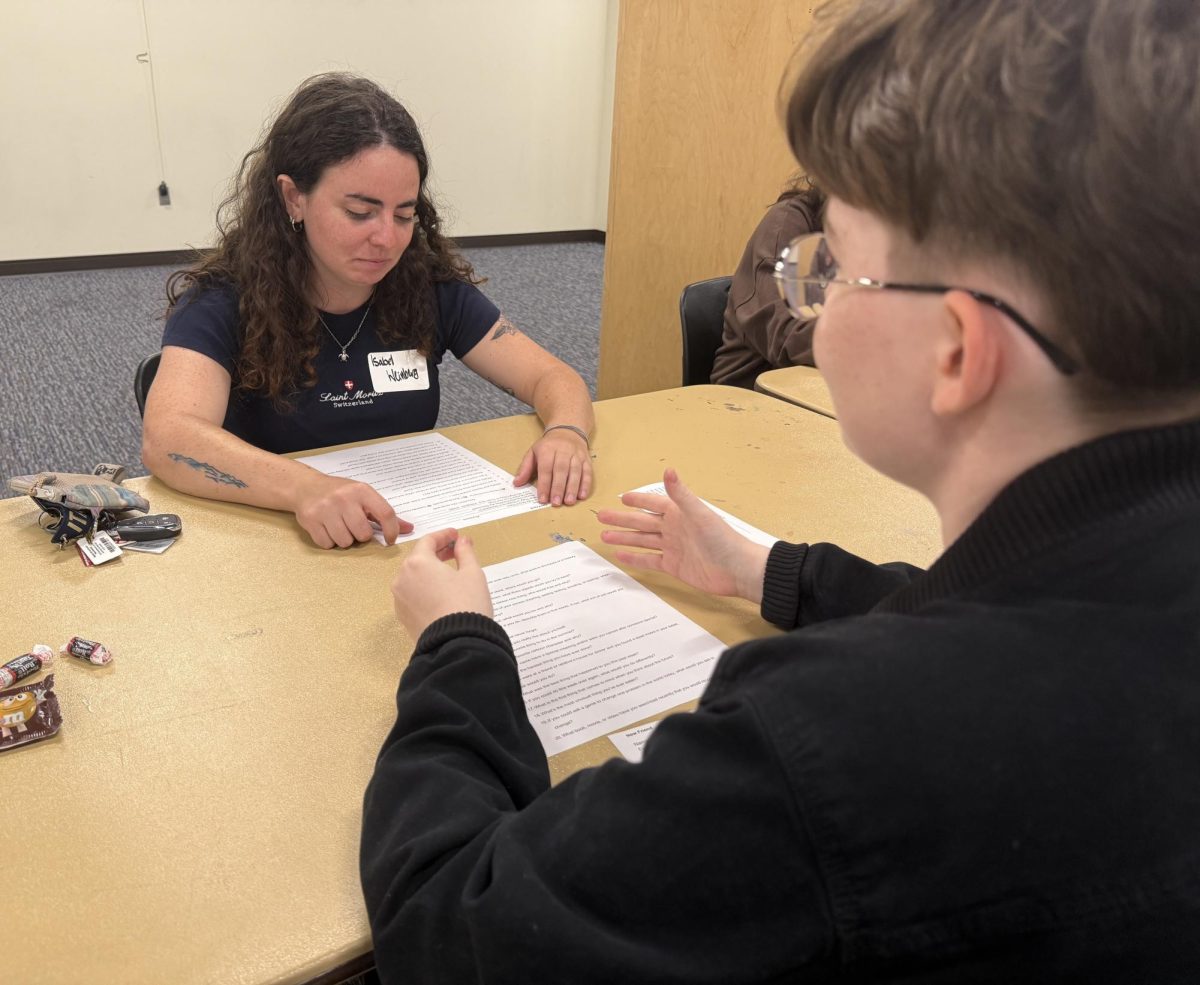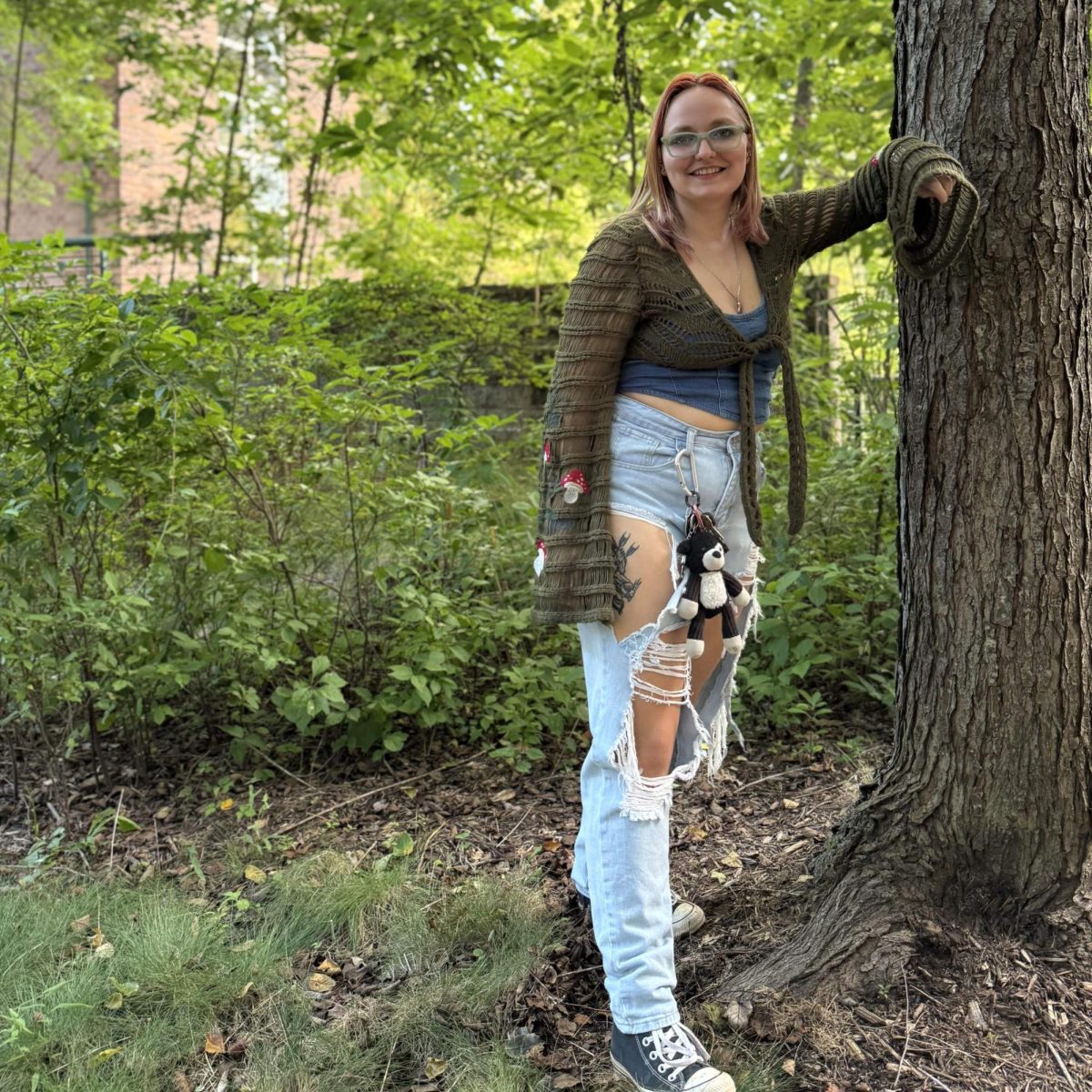Rosa Fallon
Arts & Features Staff Writer
[email protected]
The McIntosh County Shouters carry on one of the oldest surviving African-American performance traditions in the country. With roots originating in West Africa and surviving through the slave trade, the group brought their centuries-old story to UNC Asheville on Thursday evening.
The custom of the authentic ring-shout, a combination of dance, call-and-response singing and hand-clapping first appeared during the Civil War in the coastal regions of South Carolina and Georgia and still lives on in the Mt. Calvary Baptist Church, in the small community of Bolden in McIntosh County, Georgia.
The McIntosh County Shouters is composed of nine family members who have been performing the authentic ring-shout for 38 years. Many

have since passed away, but the tradition passes on through the generations.
Vanessa Carter, sister of shouter Carla Jordan and daughter of shouter Carletha Sullivan, narrated the performance, telling the story of their’ heritage throughout the concert. Carter said the shouters are close with one another, strengthening their dynamic in their performances..
“The shouters are a happy and boisterous group with a great sense of humor. We like to have fun, but we also know when it’s time to get down to business,” Carter said. “Our parents taught us to stick together no matter what. If you are related, you just stick together and take care of each other.”
Carter said every other community in McIntosh County made fun of the people in the Bolden community because they spoke in a dialect.
According to Susan Durkes, the program manager for the McIntosh County Shouters, African-Americans in the South developed their own dialects in an effort to understand one another.
“When the slaves came over to the U.S., they came from different areas of Africa so each area had its own dialect,” Durkes said. “Ultimately, when they were all brought in and mixed together with other Africans, they developed a language amongst themselves where they could understand each other.”
Carter said because of their dialect, many people stereotype them as uneducated, which is far from true. She said the group has family members in many different walks of life, from business owners to those with doctorate degrees s.
“It is the philosophy of the McIntosh County Shouters that you have to know where you came from before you know where you are going,” Carter said. “The more you know about the old, the more you will understand and appreciate the new and the modern.”
Durkes said many communities lose their traditions but the Shouters are one of the few groups who continues theirs.
“It is one of the few communities who manages to keep the tradition going,” Durkes said.
The shouters were isolated in their community and many did not know about them until 1980.
“In 1980, two folklorists found out the ring-shout tradition was still being practiced in this small community,” Durkes said. “They’re in a very isolated community, so they didn’t have any idea that nobody else taught the ring-shout.”
Durkes said the folklorists traveled to McIntosh County to watch the shouters perform and wrote about it.
“Suddenly it became this huge revelation to the traditional arts world and the world of African-American history,” she said. This prompted much attention, visits and invitations to perform.
After realizing there was a demand to learn about the ring-shout tradition, the family put together the McIntosh County Shouters touring group to perform for and educate other people outside the community about their tradition.
Throughout the concert, the shouters encouraged the crowd to clap and sing along. At one point during the performance, they invited audience members onto the stage to join them. Junior music students Sofi Campins and Miles Boone jumped out of their seats and ran toward the stage to join the ring-shout.
“Miles does this thing — it’s like his mantra when he needs to do something, he just goes ‘1, 2, 3, go,’ and so he did that and I just went with him,” Campins said.
She said it was really sudden for her but she just followed the performers.
“I didn’t know what I was supposed to do, but one of the ladies just said ‘follow me,’” Campins said.
Boone also said he was nervous at first, but the performers were very inclusive and welcoming toward him and the other participants.
“It was kind of anxiety-inducing, but I got on stage and they were all really nice,” Boone said.
He said he enjoyed the performance and hearing about the shouters’ experiences.
“I think being a black performer, it was really moving to hear them speak about their experiences and sharing about their family and how close-knit they are,” Boone said. It’s really heartwarming to see how things are passed down generation to generation.”


![Brooke Pedersen [second from the right] and Luis Reyes [right] hold banners during the Wrap The Woods event.](https://thebluebanner.net/wp-content/uploads/2025/09/ELIZABETH_PRITCHITT_IMG_3470-1200x804.jpg)





















